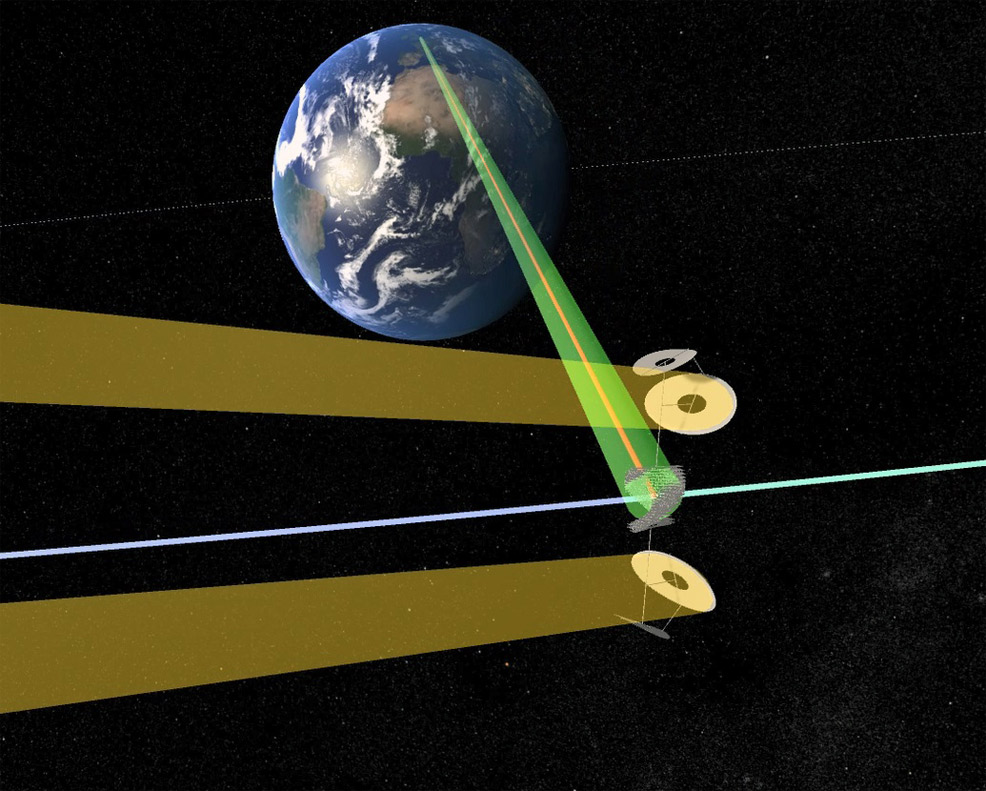- Luật
- Hỏi đáp
- Văn bản pháp luật
- Luật Giao Thông Đường Bộ
- Luật Hôn Nhân gia đình
- Luật Hành Chính,khiếu nại tố cáo
- Luật xây dựng
- Luật đất đai,bất động sản
- Luật lao động
- Luật kinh doanh đầu tư
- Luật thương mại
- Luật thuế
- Luật thi hành án
- Luật tố tụng dân sự
- Luật dân sự
- Luật thừa kế
- Luật hình sự
- Văn bản toà án Nghị quyết,án lệ
- Luật chứng khoán
- Video
- NGHIÊN CỨU PHÁP LUẬT
- ĐẦU TƯ CHỨNG KHOÁN
- BIẾN ĐỔI KHÍ HẬU
- Bình luận khoa học hình sự
- Dịch vụ pháp lý
- Tin tức và sự kiện
- Thư giãn

TIN TỨC
fanpage
Thống kê truy cập
- Online: 8
- Hôm nay: 88
- Tháng: 4450
- Tổng truy cập: 5149714
UK government to research space-based solar power
The UK government has commissioned new research into space-based solar power (SBSP) systems that would use very large solar power satellites to collect solar energy, convert it into high-frequency radio waves, and safely beam it back to ground-based receivers connected to the electrical power grid.

Credit: Frazer-Nash
American writer Isaac Asimov first conjured the idea of space-based solar power in his 1941 short story, Reason. Nearly 80 years later, what once appeared to be science fiction is now being taken seriously – thanks to rapid advances in wireless power transmission, lighter and more efficient solar panels and the falling costs of rocket launches. Solar power satellites could be technically and economically viable within the next few decades and so research is underway to make this concept a reality.
The UK has become the latest country to begin studying space-based solar power. A study commissioned by the government and led by UK consultancy firm Frazer-Nash will consider the engineering and economics of such a system, whether it could deliver affordable energy for consumers, and the technology required to build it.
One of the biggest challenges to overcome will be assembling the massive satellites in orbit, at a scale never seen before. If the system is eventually successful, however, the benefits in terms of energy security and the environment would be huge. The animation below, published by Frazer-Nash, shows how a future satellite and receiver system might operate. The satellite would be placed in a geosynchronous Laplace plane orbit, with enough sunlight to generate 2GW of baseload clean energy, beaming it down 24/7 to a sea-based platform to the east of London, connected to the national grid.
"The Sun never sets in space, so a space-based solar power system could supply renewable energy to anywhere on the planet, day or night, rain or shine," said Dr Graham Turnock, Chief Executive of the UK Space Agency. "It is an idea that has existed for decades, but has always felt decades away. The UK is growing its status as a global player in space and we have bold plans to launch satellites in the coming years. Space solar could be another string to our bow, and this study will help establish whether it is right for the UK."
Martin Soltau, Space Business Manager at Frazer-Nash, outlined what the study will involve:
"Decarbonising our economy is vital," he said. "We need to explore new technologies to provide clean, affordable, secure and dependable energy for the nation. Using the power of the Sun, space-based solar power is a low-carbon and renewable technology that could potentially offer us a resilient, safe and sustainable energy source, and could make a substantial contribution to delivering on the UK's commitment to net zero by 2050.
"Frazer-Nash is studying the leading international solar power satellite designs, and we will be drawing up the engineering plan to deploy an operational system by 2050. We are forming an expert panel, comprised of leading SBSP experts and space and energy organisations to gain a range of industry views. We will compare SBSP alongside other forms of renewable energy, to see how it would contribute as part of a future mix of clean energy technologies.
"We have also partnered with Oxford Economics, who have significant experience in the space sector and who will provide additional insight to the economic assessment of the system, and the benefit to the economy."
In addition to purely economic and technical considerations, a broader range of societal, political, and regulatory issues which are not part of this study would need to be looked at in the future, according to Frazer-Nash.
By FutureTimeLine
Các bài viết khác
- Từ sự kiện Tổng biên tập báo TIME Greta Thunberg là Nhân vật của năm 2019 đến báo cáo Biến đổi khí hậu Phúc trình của IPCC báo động đỏ cho nhân loại 82021 (15.01.2020)
- Wind-powered, transatlantic car carrier planned for 2024 (24.11.2020)
- Largest 3D-printed apartment building in Europe (24.11.2020)
- Khơi thông điểm nghẽn để phát triển doanh nghiệp tư nhân (24.11.2020)
- Dự án tỉ đô đổ bộ thị trường bất động sản (24.11.2020)






























 Yahoo:
Yahoo: 